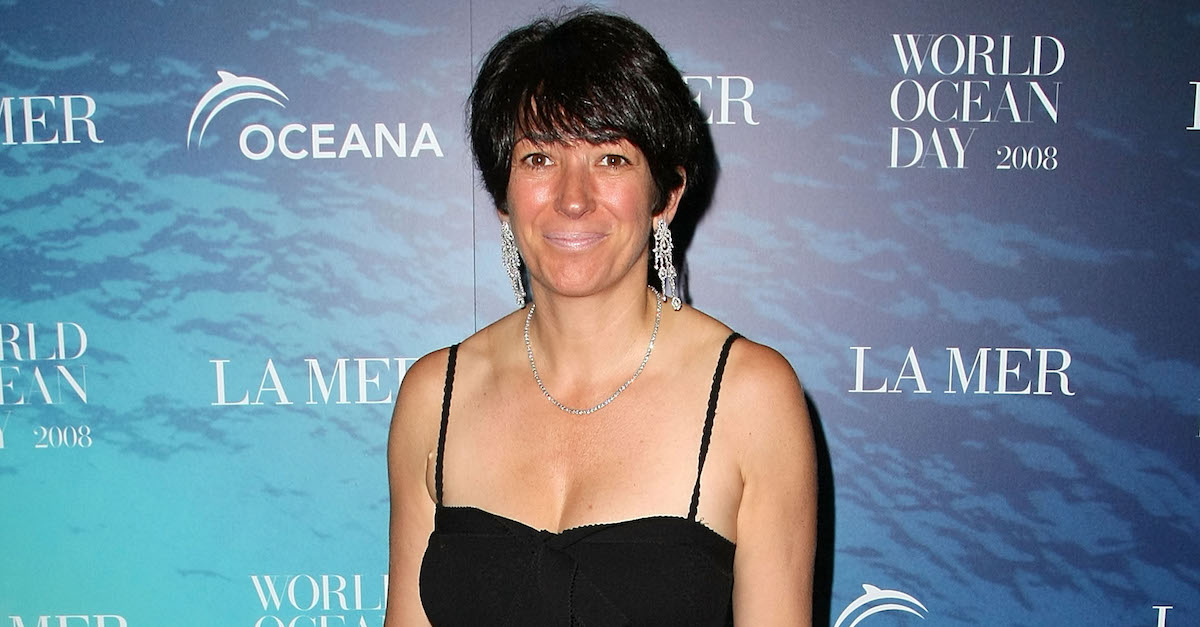
A federal judge in Manhattan has denied a media request to presume that the public should have access to an infamous and long-sought trove of documents related to dead pedophile Jeffrey Epstein.
In a terse four-page ruling, Judge Loretta Preska ruled against reporter Julie K. Brown and The Miami Herald in what’s sure to be seen as a slap in the face to the dozens of victims ensnared by Epstein’s elite pedophile ring over the course of several years.
“[Brown and the Herald‘s] argument is ostensibly that this unsealing process requires the Court to evaluate the Aristotelian essence of a document, i.e., to decide that certain documents are imbued with an inherent, free-floating power to influence judicial decision-making that makes them necessarily subject to the presumption of public access,” Preska wrote in a sharp and mocking decision.
“The Court has . . . already considered and rejected the exact contention [Brown and the Herald] advance here: that judicial documents can be categorized as such based on their abstract, generalized effect on judicial decisions rather than in the context of a decided motion,” the New York City judge continued. “That [Brown and the Herald] have found alternative dress for that position does not provide grounds for reconsideration.”
Preska previously made more or less the same decision, drastically limiting the number of documents that could be released from the court proceedings between Epstein victim Virginia Giuffre and Epstein’s friend and alleged groomer Ghislaine Maxwell.
Those thousands of documents are believed to contain lurid details about various world leaders and other high-profile individuals who allegedly engaged in the systematic rape of underage girls on Epstein’s private jet and island, the Lolita Express and Little St. James, respectively. Various claims of sexual abuse and coercion were made against those elites in the documents, which also contain some denials from those same powerful men.
The court battle was largely fought over what the judge determined were so-called “judicial documents.” Per orders handed down by a federal appeals court last year, motions previously ruled on by U.S. District Court Judge Robert Sweet definitely qualified as such documents and were given the presumption of public access, meaning they would be released.
Preska spent months considering whether to broaden the pool of documents which would ultimately be released to the public. She requested filings from the plaintiffs, the defendants, and from interested third parties such as the media, victims, and transparency advocates.
In the end, however, the New York court largely decided to keep the public in the dark, deciding that “judicial documents” were limited to the definition already supplied by the appeals court “along with documents relevant to Judge Sweet’s decisions on those motions.”
“With respect to motions left undecided by Judge Sweet,” Preska noted earlier this year, “there was never, and now never can be, a judicial decision-making process that would trigger the public’s right to access the undecided motions and the documents relevant to them.”
But that’s not quite the end of it. Preska said that some documents might yet see the light on a case-by-case basis.
Per that January ruling:
[T]he court is mindful of the fact that there is a great deal of public intrigue surrounding the unsealing of the documents at issue here. With that in mind, this court emphasizes that this ruling is a narrow one.
Brown was sanguine about today’s judge-authored setback.
“The fight for the truth continues,” she said.
Read the full ruling below:
Giuffre Miami Herald by Law&Crime on Scribd
[image via Andrew H. Walker/Getty Images]